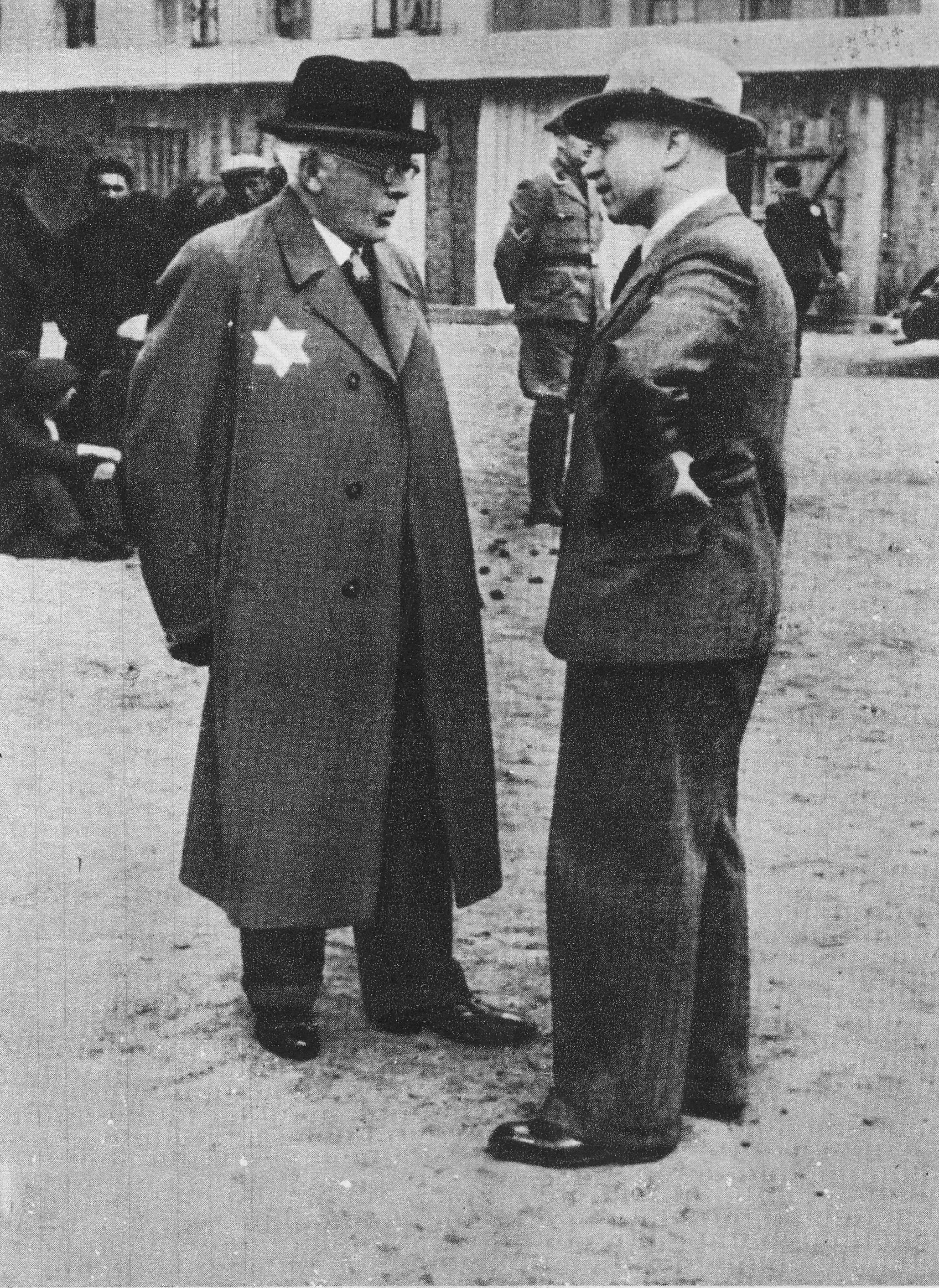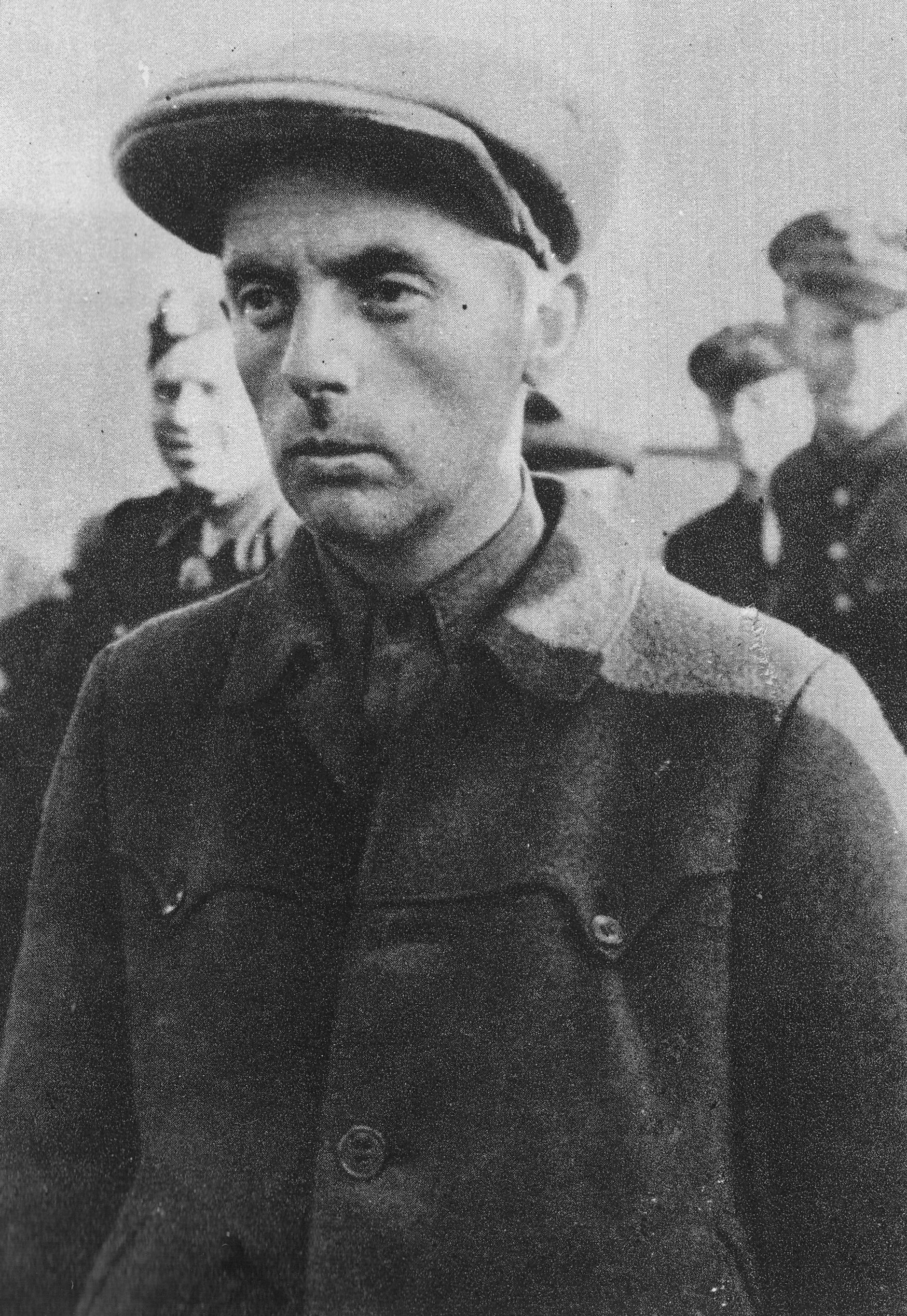Hans Biebow on:
[Wikipedia]
[Google]
[Amazon]


 Hans Biebow (December 18, 1902 – June 23, 1947) was the chief of
Hans Biebow (December 18, 1902 – June 23, 1947) was the chief of
holocaustresearchproject.org
on shoa.de
The Lódz Ghetto: History & OverviewThe Lodz Ghetto Photographs of Henryk Ross: A Collection of Holocaust Photographs
{{DEFAULTSORT:Biebow, Hans 1902 births 1947 deaths Holocaust perpetrators in Poland Nazis convicted of war crimes Łódź Ghetto Executed people from Bremen (state) People extradited from Germany People extradited to Poland Nazis executed by Poland by hanging Businesspeople from Bremen People executed for crimes against humanity


 Hans Biebow (December 18, 1902 – June 23, 1947) was the chief of
Hans Biebow (December 18, 1902 – June 23, 1947) was the chief of German Nazi
Nazi Germany (lit. "National Socialist State"), ' (lit. "Nazi State") for short; also ' (lit. "National Socialist Germany") (officially known as the German Reich from 1933 until 1943, and the Greater German Reich from 1943 to 1945) was ...
administration of the Łódź Ghetto
The Łódź Ghetto or Litzmannstadt Ghetto (after the Nazi German name for Łódź) was a Nazi ghetto established by the German authorities for Polish Jews and Roma following the Invasion of Poland. It was the second-largest ghetto in all of ...
in occupied Poland
Poland, officially the Republic of Poland, is a country in Central Europe. It is divided into 16 administrative provinces called voivodeships, covering an area of . Poland has a population of over 38 million and is the fifth-most populou ...
.
Biebow's early life is summarized by the following '' curriculum vitae'' which he submitted to the German Ghetto Administration (german: Gettoverwaltung) on May 10, 1940:
After working as a coffee
Coffee is a drink prepared from roasted coffee beans. Darkly colored, bitter, and slightly acidic, coffee has a stimulating effect on humans, primarily due to its caffeine content. It is the most popular hot drink in the world.
Seeds of ...
importer in his hometown of Bremen, Biebow became the overseer of the Litzmannstadt Ghetto. He realized that the ghetto could make a profit for the Germans if it were converted into essentially a slave labor complex.
Under his administration, the 164,000 Jew
Jews ( he, יְהוּדִים, , ) or Jewish people are an ethnoreligious group and nation originating from the Israelites Israelite origins and kingdom: "The first act in the long drama of Jewish history is the age of the Israelites""T ...
s of Poland's second largest city were crammed into a small area of the city. Communication between the ghetto inhabitants and the outside world was completely cut off and the supply of food was severely limited, ensuring that many of the residents would slowly starve. Over the course of its existence, the population swelled to 204,000, with more Jews from central Europe being sent there. The Ghetto Administration remained in operation from April 1940 until the summer of 1944.
Biebow exercised his control in part through a Jewish administration headed by Mordechai Chaim Rumkowski
Chaim Mordechaj Rumkowski (February 27, 1877 – August 28, 1944) was the head of the Judenrat, Jewish Council of Elders in the Łódź Ghetto appointed by Nazi Germany during the German occupation of Poland.
Rumkowski accrued much power by tr ...
. Rumkowski believed that the Jews could survive if they produced cheap, essential goods for the Nazis. Biebow profited substantially from the sale of the products of Jewish labour, as well as from property seized from Jews. He was directly responsible for starving the population, and he assisted the Gestapo in rounding up Jews for deportation. He is also said to have provided less food to inhabitants than was paid for, pocketing the difference. The ghetto factories produced products such as boots for German soldiers and were profitable for the Germans because the Jews, cut off from all resources, worked for wages that consisted only of bread, soup, and other essentials. The German profits from the Jewish factories have been estimated at $14,000,000 and the productivity of the ghetto was a factor in its comparatively long survival.
The inhabitants endured four years of starvation, illness
A disease is a particular abnormal condition that negatively affects the structure or function of all or part of an organism, and that is not immediately due to any external injury. Diseases are often known to be medical conditions that a ...
and overcrowding before being sent to the extermination camps of Chełmno
Chełmno (; older en, Culm; formerly ) is a town in northern Poland near the Vistula river with 18,915 inhabitants as of December 2021. It is the seat of the Chełmno County in the Kuyavian-Pomeranian Voivodeship.
Due to its regional impor ...
and Auschwitz. Among the Nazi hierarchy, Biebow was an early exponent of using the Jews as cheap labor rather than killing them, but he readily accepted the extermination policy. Survivors report he encouraged the last surviving Jews of the ghetto in the summer of 1944 to board the trains to Auschwitz with a speech that began "My Jews..." and promised them work in the West. Of the 245,000 inhabitants, 877 Jews remained when the Łódź ghetto was liberated by Soviet forces on January 19, 1945. In the days just before the liberation of Łódź, Biebow ordered large burial pits to be dug in the local cemetery, intending for the Gestapo execute the 877 Jews, who served as a clean-up crew in the ghetto. This might have been an attempt by Biebow to eliminate witnesses to his role in the atrocities.
Biebow was able to escape into hiding in Germany in 1945 after the unconditional surrender
An unconditional surrender is a surrender in which no guarantees are given to the surrendering party. It is often demanded with the threat of complete destruction, extermination or annihilation.
In modern times, unconditional surrenders most ofte ...
, but was recognized by a survivor of the ghetto and subsequently arrested in Bremen. After he was extradited by the Allies to Łódź
Łódź, also rendered in English as Lodz, is a city in central Poland and a former industrial centre. It is the capital of Łódź Voivodeship, and is located approximately south-west of Warsaw. The city's coat of arms is an example of cant ...
, he stood trial from April 23 to April 30, 1947. He was found guilty on all counts and executed by hanging on June 23, 1947.
References
External links
holocaustresearchproject.org
on shoa.de
The Lódz Ghetto: History & Overview
{{DEFAULTSORT:Biebow, Hans 1902 births 1947 deaths Holocaust perpetrators in Poland Nazis convicted of war crimes Łódź Ghetto Executed people from Bremen (state) People extradited from Germany People extradited to Poland Nazis executed by Poland by hanging Businesspeople from Bremen People executed for crimes against humanity